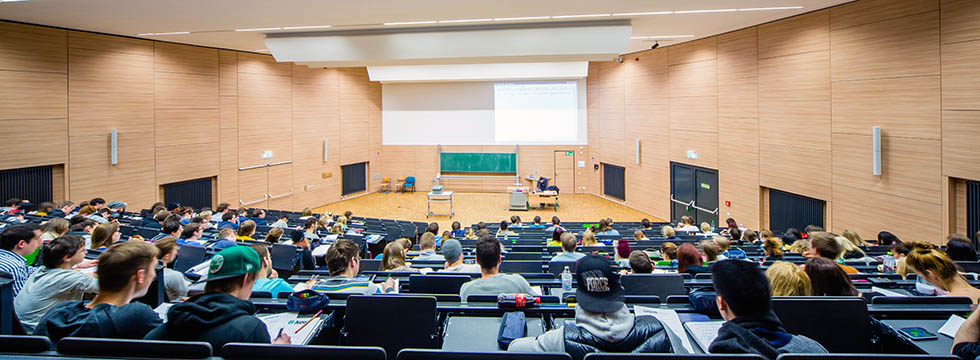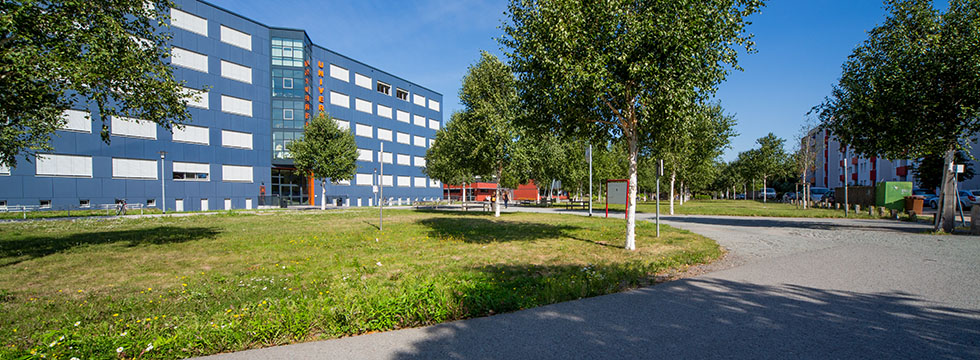European Studies
STUDY PROGRAMME
European Studies
Degree Conferred
Bachelor of Arts (B.A.)
Duration
6 Semesters
Enrollment
Wintersemester
Admission restriction
No restricted admission
Entry requirements
- Higher Education Access Certificate (usually Abitur, A levels or equivalent)
- For international applicants: knowledge of German on a C1 level is compulsory.
- All applicants must prove knowledge of English on level B2 according to the Common European Framework (e.g. TOEFL, IELTS, CAE.).
Application deadline
Applicants with German secondary school leaving certificate (Abitur)
an der OVGU
15 September
Applicants with international secondary school leaving certificate
über uni-assist
15 July
Language
German/English
Objectives
The European Studies bachelor’s programme focusses on Europe’s current political, social and economic order as well as its historical development. Therefore, students acquire knowledge of the basic methodological principles in the fields of history, social sciences and economics.
Consequently, the study programme offers an interdisciplinary social science approach, which enables the students to transfer knowledge and handle complex problems by applying a variety of systematic perspectives. By learning different scientific and methodological approaches – particularly from social sciences – students get acquainted with various schools of thought and concepts to identify alternative methods as well as to communicate across prevalent scientific barriers.
Furthermore, the programme allows students to set their own individual focus in the field of political science and sociology (compulsory elective module 2) as well as in the broad field of social sciences and/or economics (compulsory elective module 1).
In addition to these specific content-related and methodological study goals, a further transfer of knowledge is promoted through a compulsory internship. A semester abroad at one of our partner institutions supports the students in improving their intercultural and personal competence. In preparation for this, language skills are further developed in one or optionally two foreign language courses.
The core objectives of the programme are to impart:
- Basic knowledge of the genesis and state of political, social and economic conditions in Europe
- Basic disciplinary knowledge of history, social sciences and economics
- Fundamentals of scientific and systematic analysis
- Language skills in either one or two languages
The analytical and methodological objectives of the programme are:
- To impart an interdisciplinary understanding on the basis of sound training in scientific working techniques and methods
- In-depth training in social science methods, which enables an adequate scientific examination in the BA thesis and qualifies students for subsequent MA programmes and requirements of the labour market
Further competence goals:
- Intercultural competence though languages courses and a compulsory semester abroad
- Professional skills through a compulsory internship
- Self-organisation and self-responsibility through the choice of own study foci and organisation of interdisciplinary studies, preparation and follow-up of the semester abroad and the internship
Career Perspectives
Graduates of our European Studies bachelor programme are prepared to work in fields in which profound knowledge of social processes and political developments in the context of European culture and economy. The economic part of the programme prepares our students additionally for working in the free market economy.
Working fields and branches of business:
- Public service at different government levels
- Agencies and subsidiary authorities
- Interest groups in the private sector or in civil society organizations
- Associations ad organizations (Europe-related, cross-border tasks)
- Consultancy Service Provider
- Media (Print, Broadcast, Digital
- Cultural Institutions
- Culture and event management
Competencies and Interests Required
Students are expected not only to have an outstanding command of the English language but also to be willing to approach the topic of ‘Europe’ from different perspectives. The course is aimed at those who are enthusiasts who do not want to be trained to be sociologists, political scientists, specialists in German or English, educators, economists and business economists in the conventional way, but are looking for a problem-orientated multi-disciplinary education in the complex subject of ‘Europe’.


